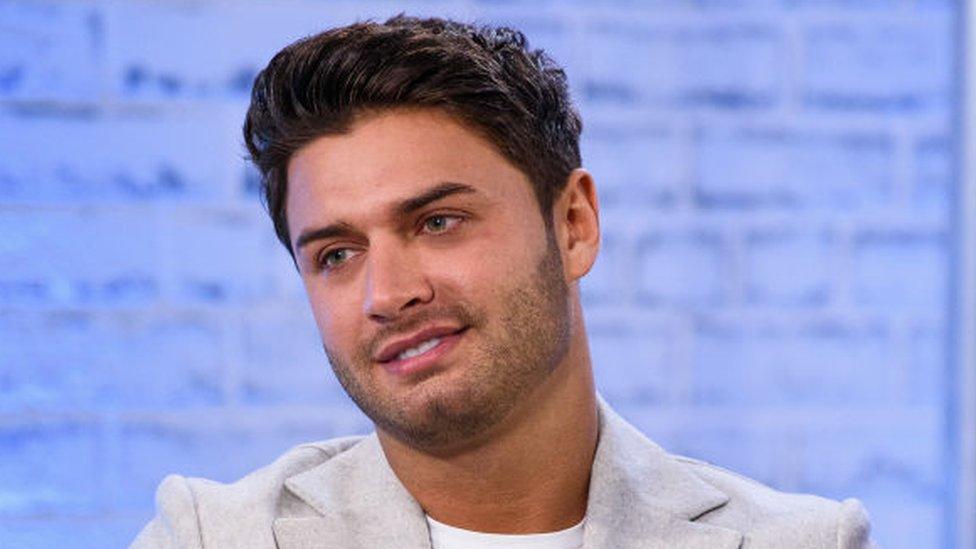Love Island contestant: 'I was treated like a murderer'
- Published
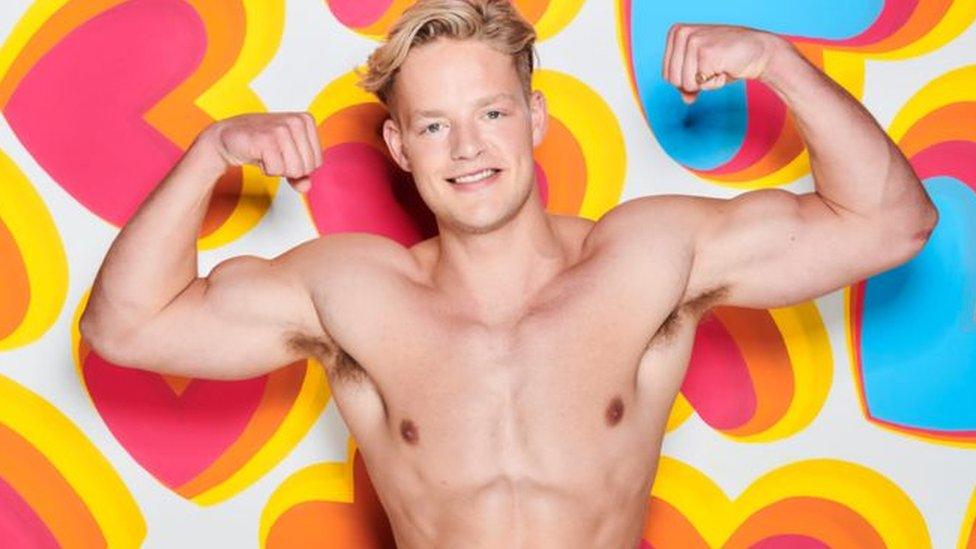
Ollie Williams said he did not expect the level of trolling he received after appearing on Love Island
A Love Island contestant who says he was "treated like a murderer" after leaving the show has backed calls for social media regulation.
Ollie Williams, from Cornwall, faced abuse over photos allegedly showing him trophy hunting, which he denies, emerged.
"Goodness knows what would have happened", had he not been so "thick-skinned", he said.
The government is giving Ofcom powers to force social media firms to act.
Former Love Island presenter Caroline Flack's death has prompted widespread demands for it to become a turning point for the treatment of celebrities on social media and in the press.
"In a world where you can be anything, be kind," Flack wrote on Instagram in December.
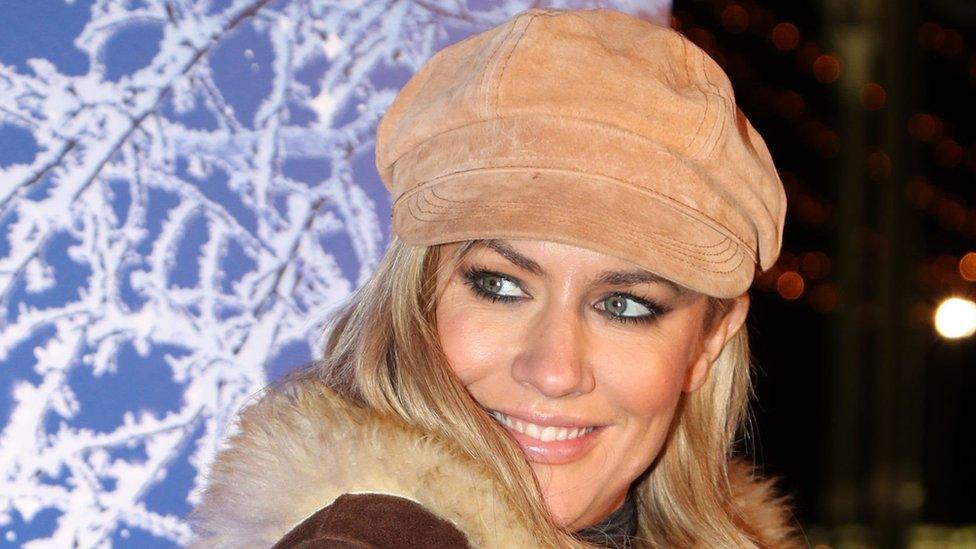
Caroline Flack, who did not present the series Ollie Williams briefly appeared in, died last weekend
Mr Williams - who spent less than three days in the Love Island villa - echoed Flack's words: "We just need to be a bit kinder to each other.
"We have this constant battle with the pressures of social media, people can say anything, it's insane."
Mr Williams's brief appearance resulted in Ofcom complaints and a petition signed by thousands after the photos of him allegedly trophy hunting were leaked., external
He said he was put on a plane within an hour of leaving the villa in January and flown into a private terminal at Heathrow.
"I had someone checking I was OK mentally when I came out, but on landing in London they assigned me a security detail - I knew then things were bad," he said.
"I felt like the most hated person in Britain... I never in a million years thought it would be this bad."
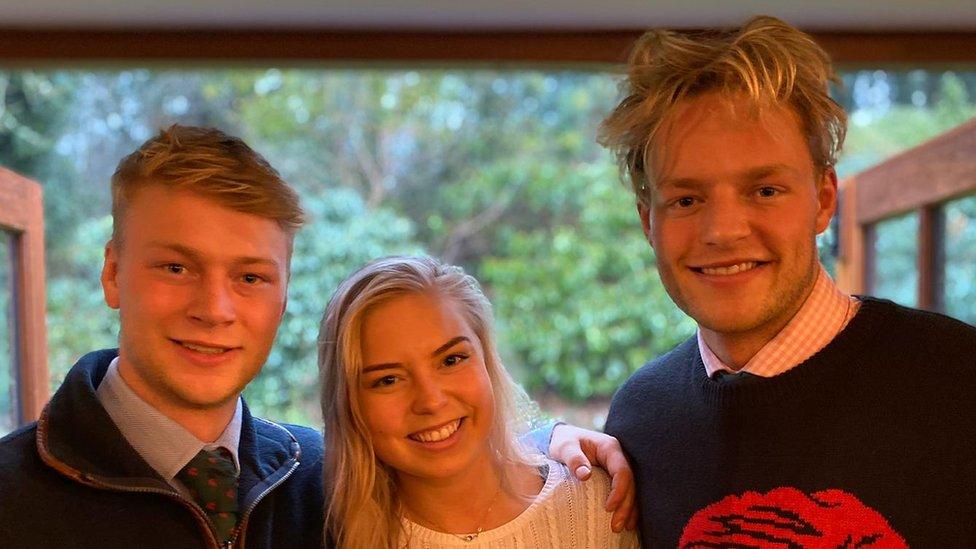
Mr Williams pictured with his brother and sister Henry and Eloise
"I never killed those animals, and I wasn't pulled from the show," said Mr Williams, who told fellow contestants he had quit the dating show because he had feelings for someone back in the UK.
"Even if I had [shot those animals] it's completely legal, it's actually encouraged in that part of the world to support conservation."
He said he had to go into hiding for 10 days because people were camping outside the family home on his return.
"I'm from a farming family in Cornwall, yes it was a privileged background, but I didn't deserve to be trolled and neither did my family," he said.
"My sister received death threats on social media, it's affected the whole family."
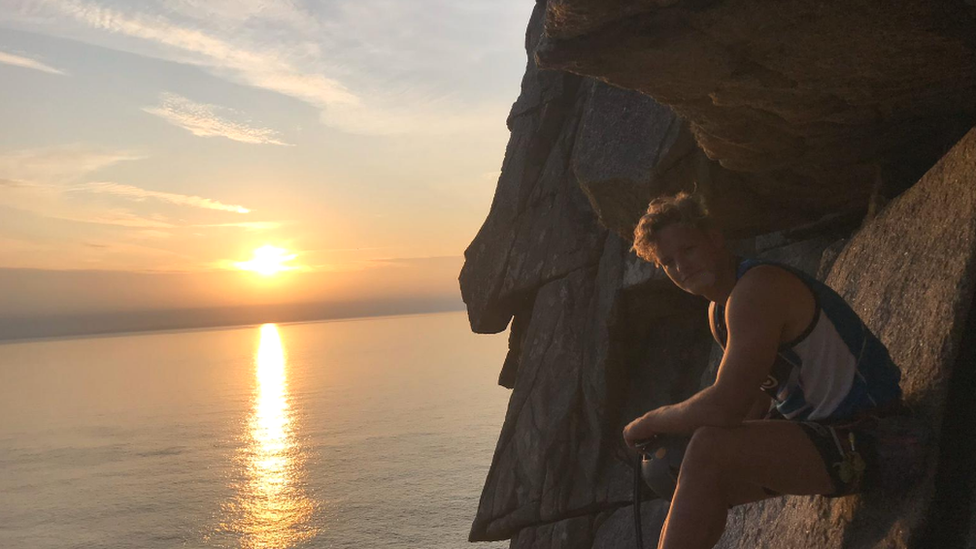
"There's now this constant pressure of what people are saying on social media"
"The worst thing you can do is try to battle them [on social media], but it's hard not to let it affect you.
"It's no good just blocking and reporting, that doesn't work - currently regulation is non-existent," he said.
"There's nothing you can't write, and people are dying because of it."
The Department for Digital, Culture, Media and Sport said appointing a communications watchdog, external was part of its "plans to protect children and vulnerable people online and give consumers greater confidence to use technology".
In 2019, former Love Island contestants Mike Thalassitis and Sophie Gradon took their own lives, sparking debates about aftercare from the show.
Following Thalassitis's death, ITV said it would deliver "bespoke" training to all future contestants, to include social media and financial management.
"Conversations about mental health have never been more important," the ITV statement said.

Information and support
If you or someone you know needs support for issues about emotional distress, these organisations may be able to help.

- Published12 February 2020
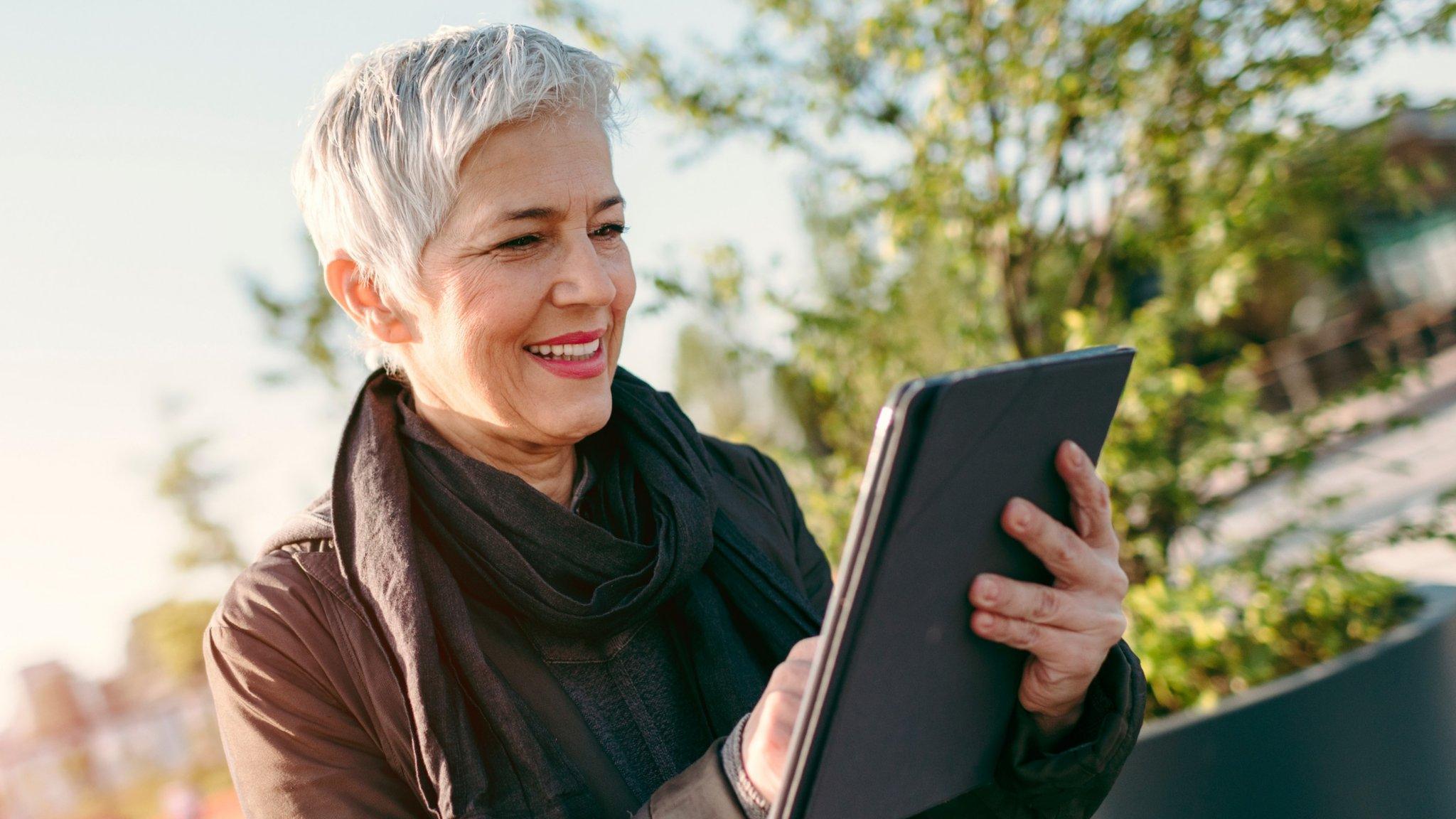
- Published18 February 2020
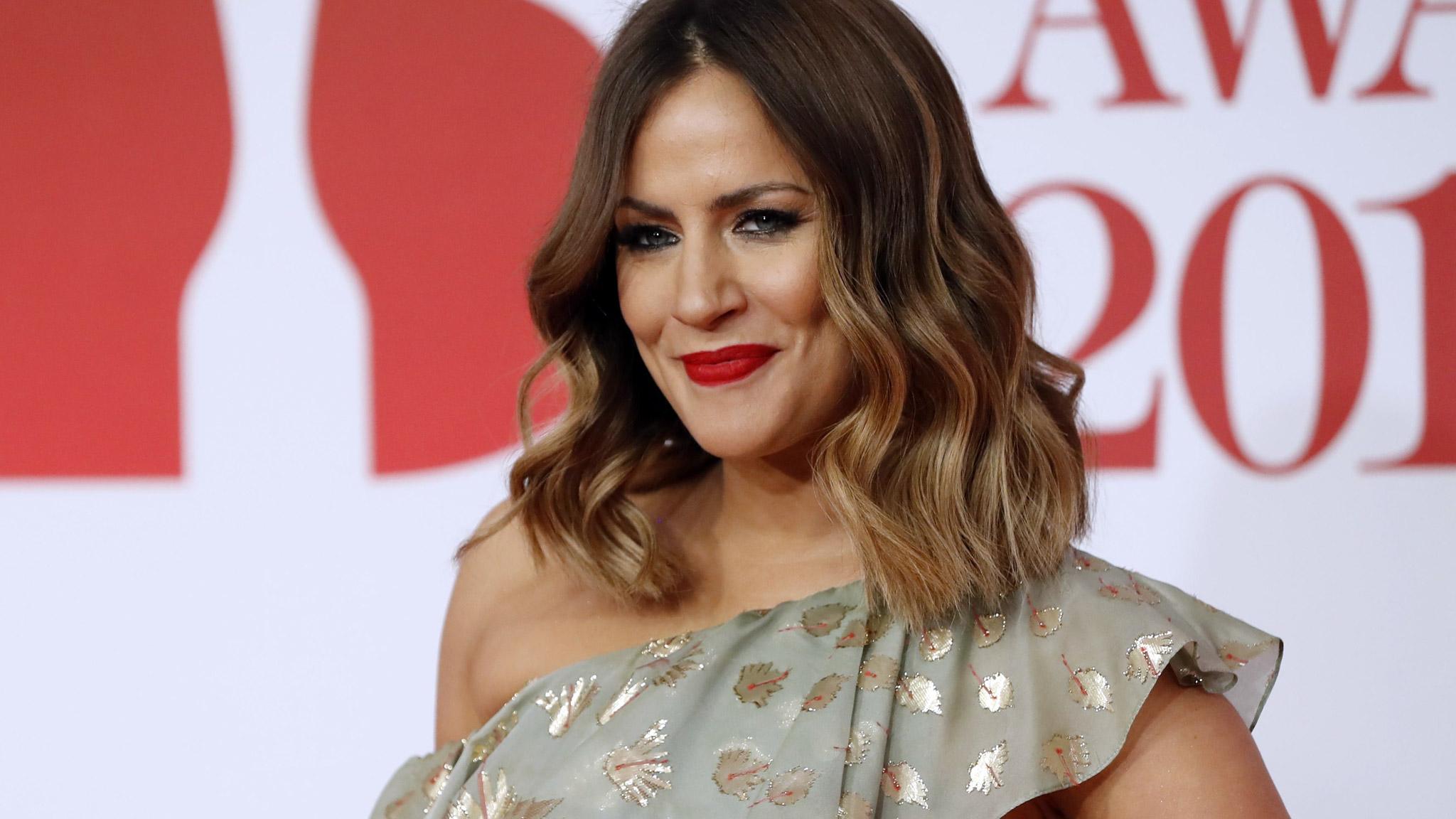
- Published14 January 2020
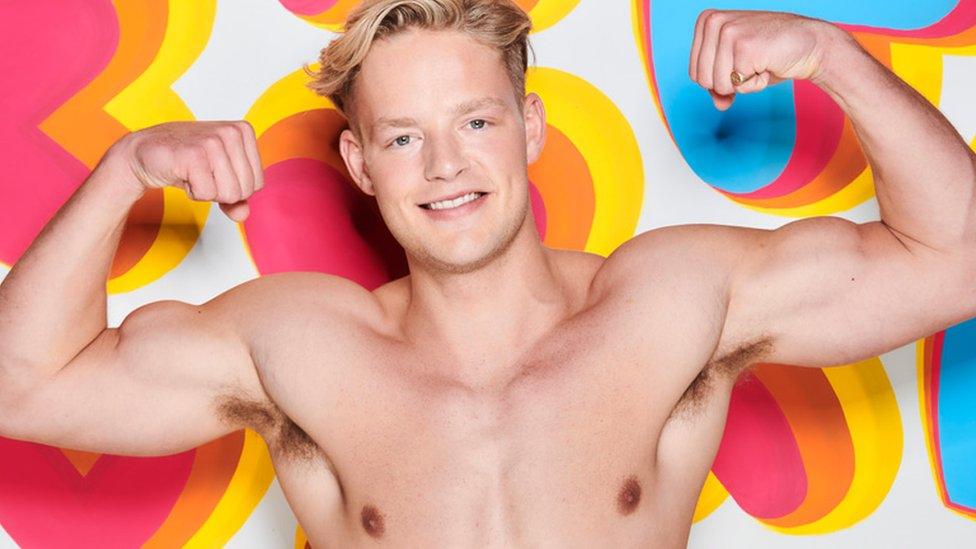
- Published29 March 2019
